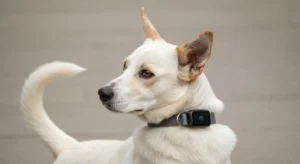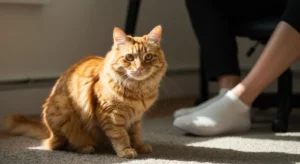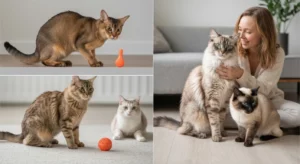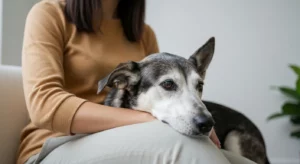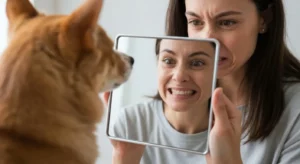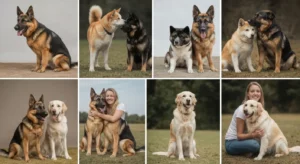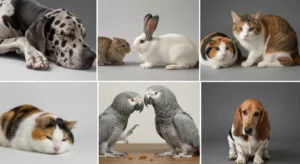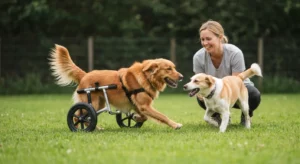Home, for me, was never about the four walls or the roof over my head. For five years, home was the soft weight of a marmalade cat purring on my chest. It was the gentle thud of him jumping onto my desk, insisting that my deadline was less important than a chin scratch. Home was Leo.
Leo wasn’t just a pet; he was the furry, orange soul of my house. A rescue I’d adopted as a lanky kitten with paws too big for his body, he grew into a majestic creature with amber eyes and a tiny, endearing chip in his left ear from a mysterious scuffle long before I knew him. He was my shadow, my confidant, the silent observer of my life’s small triumphs and quiet sorrows. Our days were woven together in a comfortable, predictable rhythm. He’d wake me by kneading my shoulder, “supervise” my coffee-making from the kitchen counter, and settle into the patch of sun on the rug beside my desk as I worked.
The silence of his absence was something I couldn’t yet imagine. The very idea was an abstraction, a theoretical pain I never thought I’d have to face. He was an indoor cat, content and safe. Our bond felt as solid and permanent as the foundation of the house itself. I was wrong.
The Day the World Went Silent
It happened on a deceptively beautiful Saturday in late September. The air was crisp with the promise of autumn, and I’d decided to tackle some long-overdue yard work. I propped the back door open with a brick, just for a moment, to carry a bag of leaves outside. It couldn’t have been more than sixty seconds. I remember seeing Leo watching a blue jay from the living room window just before I went out.
An hour later, covered in dirt and feeling accomplished, I came inside and called his name. “Leo! Treaty-treat?”
Nothing. Usually, the crinkle of the treat bag was an irresistible summons. I heard only the hum of the refrigerator. I called again, a little louder. I checked his favorite napping spots: the laundry basket, the top of the bookshelf, the cavern he’d made in the closet behind my shoes. The house was still. It wasn’t a peaceful quiet; it was a heavy, hollow silence that pressed in on me.
Panic began as a cold knot in my stomach. I raced outside, calling his name until my voice was hoarse. I scanned the bushes, peered under my neighbor’s deck, and shook his treat bag so violently it sounded like a maraca of desperation. As dusk settled, painting the sky in shades of bruised purple and orange, the knot in my stomach tightened into pure dread. The world he knew was inside these walls. Outside was a vast, terrifying unknown.
That first night was a special kind of hell reserved for pet owners who don’t know where their animal is. Every creak of the floorboards was him at the door. Every rustle of leaves was him in the bushes. I left the back door slightly ajar, a bowl of his favorite food just inside, hoping its scent would guide him home. I didn’t sleep. I just sat on the couch, staring at the dark doorway, praying for the sight of his familiar silhouette.
The Agony of the Search
The next morning, the nightmare wasn’t over. It had just begun. My life was immediately reoriented around a single, obsessive mission: find Leo.
I designed a “LOST CAT” flyer, choosing the best picture I had—one where he was looking right at the camera, the chip in his ear clearly visible. His amber eyes seemed to stare back at me, pleading. I printed a hundred copies. I taped them to telephone poles, community mailboxes, and coffee shop bulletin boards. Each flyer felt like a tiny beacon of hope sent out into an indifferent world.
My days became a blur of frantic activity. I followed every piece of advice I could find online. I walked the neighborhood at dawn and dusk, the hours cats are most active, calling his name in a soft, non-threatening voice. I left his litter box on the porch, a scent marker to guide him. I spoke to every person I saw: the mail carrier, the kids riding their bikes, the elderly woman tending her roses. “Have you seen an orange cat?” became my mantra. “He has a little chip in his left ear.”
Some people were incredibly kind, their eyes full of empathy. They took a flyer and promised to keep a lookout. Others offered well-meaning but soul-crushing advice. “He’s probably just off on an adventure,” they’d say. “Cats are resilient.” But they didn’t know Leo. He wasn’t an adventurer; he was a homebody whose biggest expedition was a supervised trip onto the screened-in porch.
The emotional whiplash was relentless. A neighbor would call: “I think I saw your cat dart under my shed!” Hope would surge through me, electric and dizzying. I’d rush over, my heart pounding, only to find a feral tabby who looked nothing like him. The crash back to reality was brutal, leaving me more depleted than before. Weeks bled into a month, then two. The vibrant colors on the flyers faded under the autumn sun, the paper curling and tearing at the edges. They started to look less like active search posters and more like weathered memorials.
Letting Go of Hope
There comes a point in a search like this where you have to make a choice. You can either let the hope consume you, living in a permanent state of anxious vigilance, or you can begin the heartbreaking process of letting go. For me, that moment came three months after he disappeared. The first snow of the season had fallen, blanketing the world in a cold, unforgiving white.
The thought of him out there, alone in the freezing cold, was unbearable. I had to believe that someone kind had taken him in. It was the only narrative that allowed me to function. With leaden hands, I walked through the neighborhood and took down the remaining flyers. Each staple I pulled from a wooden pole felt like a final admission of defeat.
Back home, I gathered his things—his favorite feathered toy, his food bowls, the soft bed he loved—and packed them into a box. I slid the box into the back of a closet and shut the door. The house, which had felt empty for months, now felt cavernous. The silence was no longer waiting to be broken; it had become the new normal. I had accepted that a cat’s journey could sometimes be a one-way street. I was grieving a ghost.
Life continued, as it always does. But it was a life lived in grayscale. I’d still catch myself glancing at the spot where his bed used to be or listening for the sound of his paws on the hardwood floor. The phantom limb of his presence was a constant, aching reminder of what I had lost.
The Phone Call That Changed Everything
Six months. One hundred and eighty-two days after he vanished. It was a Tuesday afternoon in March. The snow had melted, and the first hints of spring were in the air. I was working, lost in some spreadsheet, when my phone rang with an unknown number from a town about 20 miles away.
I almost ignored it, but something made me answer. “Hello?”
“Hi, am I speaking with…,” a woman’s voice hesitated, then read my name. “My name is Sarah, I’m a vet tech at the Oakville Animal Clinic. We have a cat here who was brought in as a stray, and we scanned him for a microchip. It’s registered to you.”
My world stopped. I couldn’t breathe. My brain refused to process the words. “A cat?” I managed to croak out.
“Yes, an adult male, orange tabby,” she said patiently. “He’s a little thin and scruffy, but otherwise seems healthy. Does that sound familiar?”
My mind was a battlefield of warring emotions: disbelief, terror, and a fragile, terrifying flicker of hope. “I… I had a cat who went missing six months ago,” I stammered. “Does he… does he have a little chip in his left ear?”
There was a pause. I could hear her murmuring to someone in the background. Then, she was back on the line. “Oh my gosh, yes he does! A little V-shaped nick right on the tip. Is this your boy?”
A sob escaped my lips, a sound I didn’t know I was holding in. “Yes,” I whispered. “That’s my Leo.”
The Miracle of Return
The twenty-mile drive to that vet clinic was the longest of my life. My hands trembled on the steering wheel. What if it’s not him? What if he doesn’t remember me? What has he been through? The questions swirled in my head, a tornado of anxiety and anticipation.
I walked into the clinic, my heart hammering against my ribs. The vet tech, Sarah, gave me a compassionate smile and led me to the back. And there, in a stainless-steel kennel, was a sight that buckled my knees. He was thinner, his coat less glossy, but those amber eyes were the same. The chipped ear was the same. It was him.
“Leo?” I whispered, my voice breaking.
His head shot up. His eyes locked onto mine. A moment of stillness passed between us, and then he let out a loud, familiar meow—not a cry of distress, but a sound of pure recognition. A sound I thought I’d never hear again.
When Sarah opened the kennel door, he walked right into my arms and buried his head in my neck, purring with the force of a tiny engine. I held him, tears streaming down my face, overcome by a tidal wave of relief so profound it felt like I could finally breathe again after six long months. The person who found him, a kind woman who had been leaving food out for a stray, had finally managed to coax him close enough to take him to the vet. She was an anonymous angel to whom I would be forever grateful.
I will never know the full story of my cat’s journey. I don’t know if he was trapped somewhere, if he was taken in and escaped, or if he was simply surviving on his own, slowly making his way through an unknown world. The mystery of those six months will always remain.
But what I do know is this: bringing him home was like watching a black-and-white film burst into brilliant color. The silence was gone, replaced by the happy sounds of purrs and paws. He is different now, more clingy and vocal, as if he is telling me the story of his ordeal in a language only we can understand. He rarely leaves my side, a constant, warm presence reminding me of how fragile and precious our bond truly is. His mysterious disappearance taught me the depths of grief, but his miracle return taught me the power of hope, the kindness of strangers, and the undeniable, unbreakable tether that connects a person to their pet. He wasn’t just a cat who was lost; he was the part of my home that had gone missing. And now, finally, we were both whole again.




